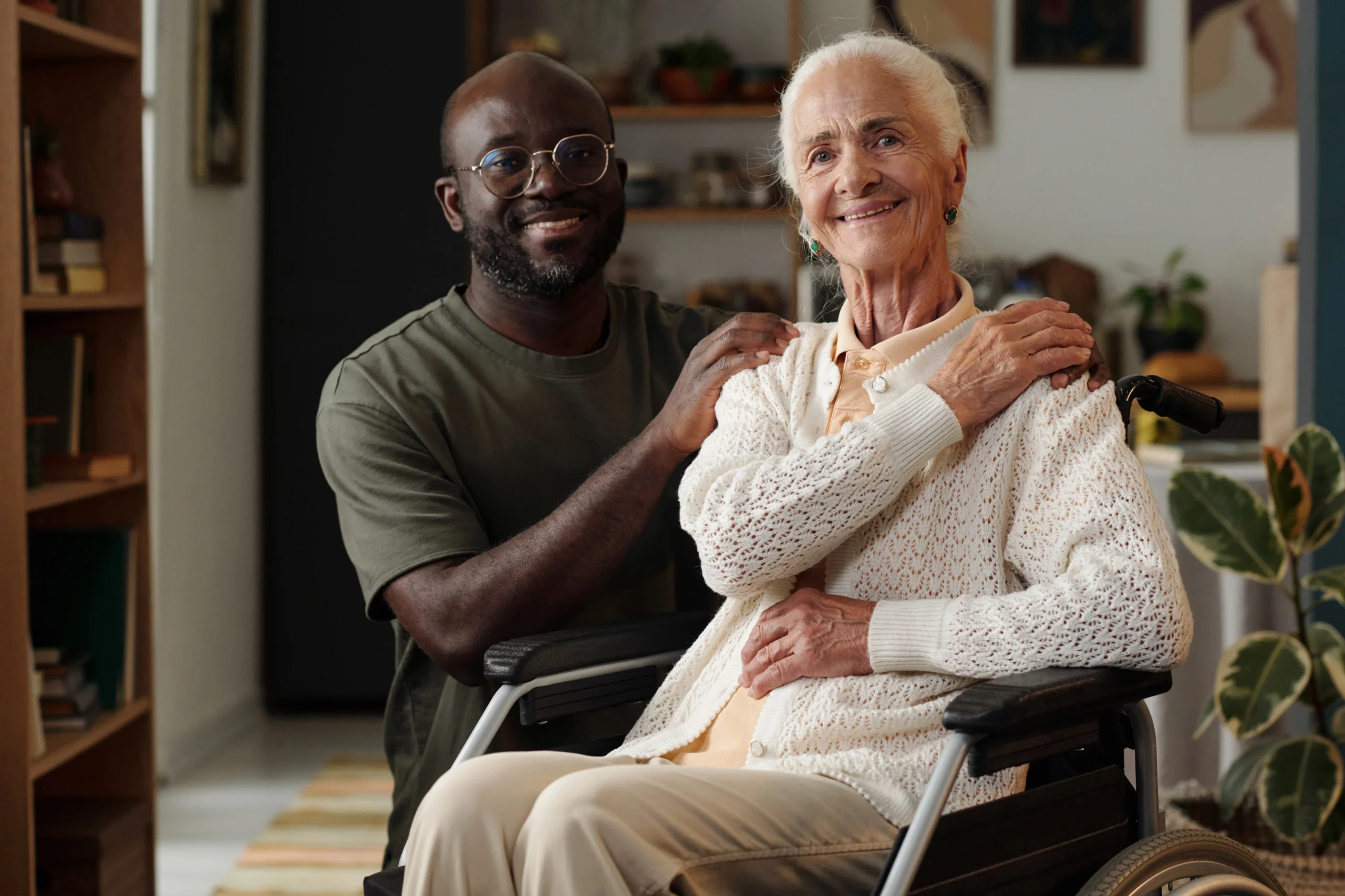(267) 778-9143
News

Publication date: October 6, 2025
Everyone agrees that home is cozier and more comfortable than any other place. The new philosophy of home care allows you to receive the necessary support in familiar surroundings. This will have a positive effect on both physical and emotional well-being.
The answer to the question of how to improve quality of life for seniors lies in ensuring several aspects. These include:
Quality of life in home care can not only be maintained, but also improved.
With age, everyday needs become challenges. This can be avoided by continuing to feel comfortable and safe. Home care services are personalized. An appropriate plan is developed for each person with disabilities or elderly people. All wishes and individual needs are taken into account. There is nothing to worry about, as experienced caregivers are working on this.
Everything at home is familiar – the furniture, where everything belongs, and the mementos that you want to look at again and again. They can follow their usual daily routine, but at the same time receive help whenever they need it. This has a positive effect on their emotional well-being and allows them to stay within their comfort zone.
Home care provides maximum safety, as the patient is under regular supervision by specialists. They perform diagnostics when necessary and, in extreme cases, arrange hospitalization.
Caregivers can also help make the home safer to prevent potential accidents. For example, they can remove items that could cause you to trip or ensure that lighting is adequate to make it easier to move around. If there are physical difficulties, such people will be helped to get up, walk, and more. In addition, it will be useful to adjust the furniture. Most often, they start with the height of the bed.
Every pensioner has their own unique characteristics that need to be taken into account. The caregiver immediately asks about the patient’s health, needs, daily leisure activities, and other important matters. She adapts to the patient so that they feel as little change as possible in their lifestyle.
Caregivers can provide different types of support. They will help with everything, so they are divided into two types:
Both forms of support are necessary, so they are an indispensable part of home care. But of course, the plan can be adjusted for each individual.

Stress should be eliminated from life as much as possible, and companionship helps to combat it. Personalized care allows retirees to feel that everything is under control. They don’t have to worry about not being able to get up to eat their favorite food or forgetting to take important medications. In addition to stability and predictability, there is emotional support, which protects against many illnesses, including depression and anxiety.
Retirees don’t have to worry about their privacy being invaded. Since they are at home, they can enjoy a number of advantages of this type of care.
| Category | Benefits |
| Emotional support | Friendly staff are always nearby, ready to help. Warm conversations lift your spirits and put your mind at ease. |
| Social engagement | Retirees who stay at home still maintain their relationships, can meet up with friends, and have fun. |
| Participation in leisure activities | You can pursue your hobbies, go for walks, and maintain your usual routine. This makes life more interesting. |
There may be even more emotional and social benefits. The staff adapts to their patients, so they are ready to offer them various options.
When someone close to you loses their usual strength, it is difficult not only physically but also emotionally. To avoid burnout, continue working, and maintain their usual lifestyle, such people seek support and choose home caregivers. They trust professionals, which makes their elderly loved ones feel comfortable.
Home care includes comprehensive support. They have experience in this field, so they quickly notice any changes that need to be addressed. In addition, they work closely with social services. If necessary, you can seek psychological help or receive emotional counseling.
Feeling peace of mind is easier thanks to family caregivers, as they control virtually every aspect of care. Everyone can choose a care plan that suits them and discuss all the details. If pensioners want to do something on their own, guardians can help them by giving recommendations and guidance.
Every family is unique, so a care plan can be adjusted and changed over time. For example, it is possible to choose:
In other words, the dignity of modern care plans is flexibility. Discuss all the conditions, clarifying the preferences of the person who will be cared for.
With home care, both sides will be able to breathe more freely. The resilience of caregivers in different situations cannot be overestimated, so you can be sure that they will cope with any task. In addition, each client can choose a caregiver whom they like and who suits them in every way.
Specialized care at home simplifies the performance of vital functions. Because these tasks become less difficult thanks to the support provided, emotional well-being improves. Self-esteem also rises, as the caregiver can also provide psychological support. Now there is always a reliable person nearby who can be counted on.

Inspiring you to live independently